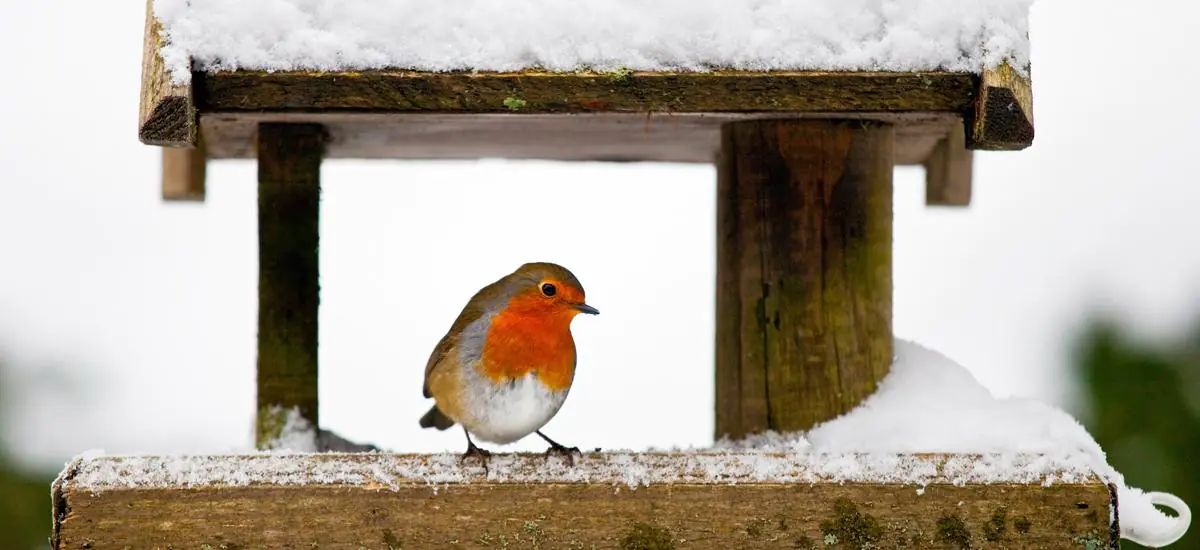What Winter Birds Can You Attract To Your Garden?
In the UK you would never know we are coming into the throws of Winter! The warm, sunny Autumn days are confusing to us and wildlife.
As we look out across the farmland at Ivel Valley Farm, we have noticed how slowly the leaves are changing color and falling to the ground. They are almost suspended in their natural rebirth.
Warmer weather in September, October, and November mean insects remain active a lot longer. We even noticed a couple of very drowsy wasps buzzing around recently that have more than outstayed their welcome at this time of year.
Abundance of Birds
For any budding bird enthusiast, a delayed winter can of course mean there is more opportunity to seek out and attract winter birds to the garden.
Depending on where you live in the country, you can be assured you will be blessed with the chirps and twittering of birdsong over the long winter months.
Here in the UK we're lucky enough to have some of the most beautiful, and smallest, wild birds around. Whilst you might spot one or two of these species all year round, winter is when they really shine!
Here is a list of birds you can expect to see this winter and of course what you can feed them to ensure they are kept plump and warm!
Robin Red Breast

These territorial little birds may have a pleasant appearance, but they will defend their food source with ferocity.
When feeding try to replicate their natural diet by feeding protein-rich mealworms, energy-rich seeds, and even soft fruits.
Goldfinch

Goldfinches are very picky eaters and are only really drawn to Nyger seed (also known as Nyjer or Thistle seed) or Sunflower Hearts. You can buy specialist nyger feeders to offer and sunflower hearts will fit in any normal seed feeder.
Blue Tits

These beautiful little birds love fatty seeds, especially suet based products. Here on the Ivel Valley farm the Blue Tits are always the first birds on a feeder or fresh suet pellets of suet rolls! Blue Tits eat mixed bird seed and peanuts from hanging feeders, as well as suet pellets and suet balls.
Goldcrests

These elusive garden birds will very rarely eat from bird feeders. They are natural ground feeders, with a preference for juicy insects.
Throw out a few mixed seeds or small pieces of cheese and you will be rewarded by a visit or two.
Dunnocks

They may not have the bold colours that some other birds have but the intricate bronze patterns on Dunnocks make them beautiful in their own way.
Dunnocks favour woodlands so you'll often find them hopping around in the bushes looking for insects and worms on the floor and in the dirt. Of course, you can help attract them to your garden with dried mealworms and other insect based feeds and suet.
Bullfinches

No, it's not an exotic bird from a far away land, these stunning Bullfinches are in fact European natives and found in plenty of gardens in the UK.
Often seen in pairs, Bullfinches enjoy feeding on the buds of fruit trees in the spring and will feed on various seeds in the winter. Unfortunately, Bullfinch numbers are declining so make sure to put out plenty of seeds and mealworms for these beautiful finches over the winter.
Winter Wonderland
We are so lucky to be blessed with a variety of winter bird species. Taking the time to place a few high quality nuts and seeds in the garden this winter really will help the bird population.
Suet products are also fantastic for a variety of birds this winter, helping to keep their energy high, which in turn helps them keep warm.

